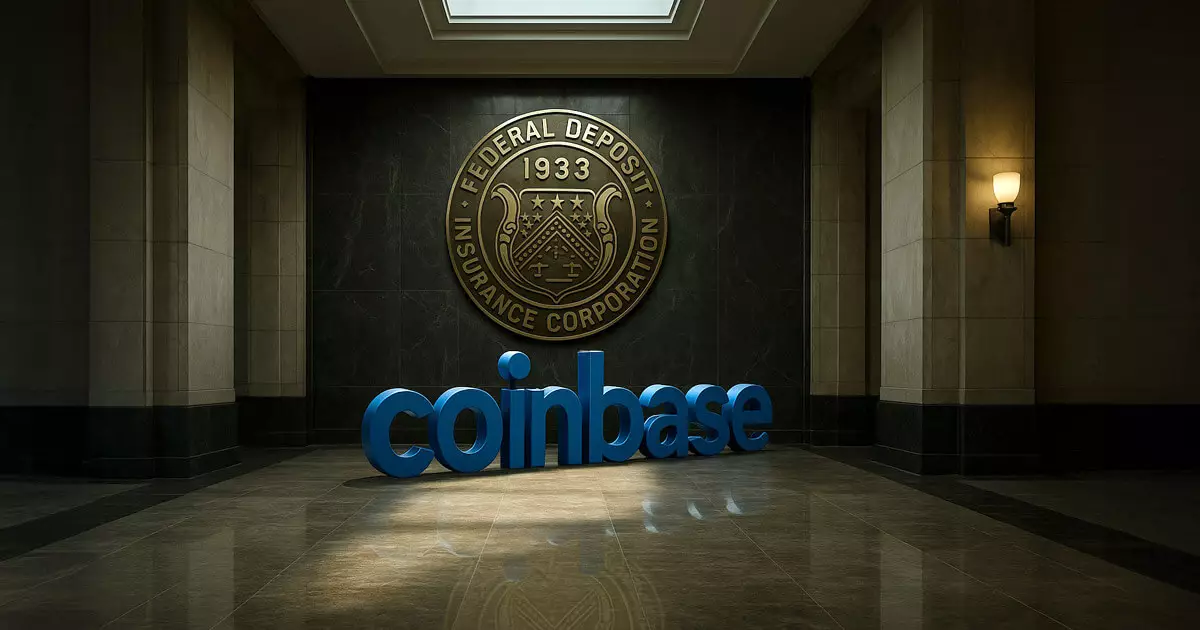In a significant legal clash, Coinbase is taking a strong stand against what it perceives as the Federal Deposit Insurance Corporation’s (FDIC) nefarious maneuvers to delay the release of critical documents concerning the alleged debanking of cryptocurrency firms. The stakes are undeniably high, as this case not only represents Coinbase’s battle for transparency, but also underscores broader concerns regarding governmental overreach into the innovative cryptocurrency landscape.
Coinbase’s Defiant Response to Obfuscation
In a recent move, Coinbase filed a staunch objection to the FDIC’s outlandish request for a 16-day extension regarding a Freedom of Information Act (FOIA) lawsuit. Chief Legal Officer Paul Grewal did not mince his words, describing the request as “absurd.” This characterization is not merely rhetorical; it highlights a perceived pattern of obstruction from the FDIC that could have significant implications for stakeholders in the cryptocurrency ecosystem. Grewal emphasized the agency’s ineffectiveness, pointing to the FDIC’s 13-page filing that demonstrated a reluctance to confront its responsibilities promptly. Instead of providing meaningful transparency, the agency’s actions appear to be aimed at maintaining an opaque status quo.
Documenting the Disconnect: Heavy Redactions and Regulatory Evasion
Coinbase has accused the FDIC of failing to meet its legal obligations under FOIA, arguing that the heavily redacted documents it received fail to provide any substantive insight into the government’s dealings with crypto firms. The company contends that the agency’s strategy to heavily censor materials defeats the core purpose of FOIA—to promote transparency and accountability. Furthermore, Coinbase contests the FDIC’s assertion that it has until May 2 to respond, insisting that the actual deadline is April 16. This alleged misinterpretation of deadlines suggests a troubling dynamic where regulatory bodies may prioritize evasion over compliance.
The Underbelly of Crypto Debanking: Unveiling Regulatory Pressures
What’s particularly alarming is the content of the documents that have been disclosed thus far, which indicate that the FDIC has been pressuring financial institutions to sever ties with digital asset firms. This heavy-handed approach raises serious questions about the regulatory environment surrounding cryptocurrencies in the United States. Some banks have reportedly been instructed to freeze services to crypto businesses until they obtain explicit regulatory approval, while others face threats regarding their reputational risk from association with the industry. This kind of coercive regulation stifles innovation and manipulation of market dynamics in a way that serves no one except entrenched institutional interests.
Towards a New Era of Accountability in Finance
Coinbase argues that these initial disclosures merely skim the surface, and there is a broader narrative that requires investigation. The company’s commitment to uncovering the full extent of FDIC influence in debanking practices illustrates a crucial juncture for the cryptocurrency sector. As the debate surrounding regulation intensifies, it becomes ever more vital that transparency is prioritized and that stakeholders come together to demand accountability from regulatory bodies. The fight against bureaucratic stalling is not just a legal battle for Coinbase; it’s a transformative moment that could redefine the relationship between innovation in finance and government oversight.














